Weekly Reader: Remembering Soviet Yiddish Writers
On August 12, 1952, thirteen Soviet Jews—Yiddish cultural figures, many of whom had been members of the Jewish Anti-Fascist Committee during World War II—were executed in the Lybanka prison in Moscow. They had already been held captive for several years and had been repeatedly interrogated and tortured. Among these victims of Stalinist persecution were five Yiddish writers: Peretz Markish, Dovid Hofshteyn, Itzik Feffer, Leyb Kvitko, and Dovid Bergelson. Today, the date of their deaths is commemorated as the “Night of the Murdered Poets.” In honor of those victims of Stalin’s purges, we’re taking a look not just at their tragic deaths but also at their lives and work.
—Ezra Glinter, Senior Staff Writer and Editor
Soviet Yiddish
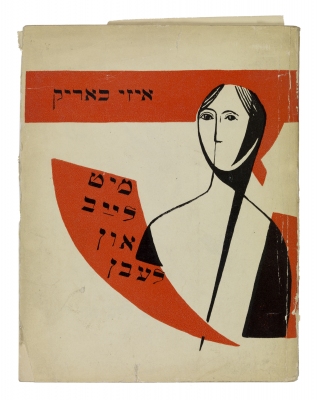
Despite its tragic fate, Soviet Yiddish culture once showed great promise. To counteract tsarist cultural imperialism and simultaneously spread socialism, the Soviet Union initially supported the cultures of many of its ethnic minorities, including Jews. It named Yiddish the Jews’ official language and sponsored Yiddish theaters, schools, courts, newspapers, colleges, and universities. You can learn more about Soviet Yiddish culture in this section of our Unquiet Pages online exhibition.
A Poet Remembers
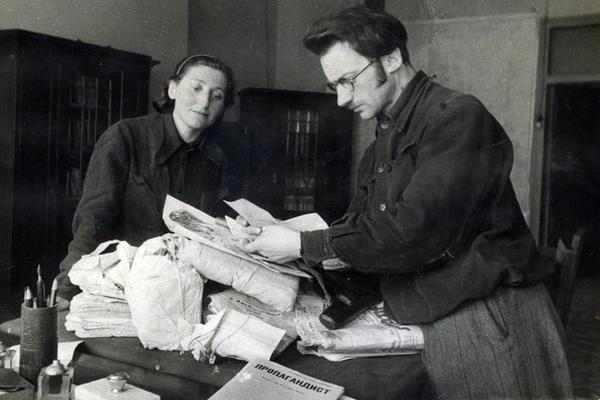
After their escape from the Vilna ghetto on September 12, 1943, Yiddish poet Abraham Sutzkever and his wife, Freydke, spent six months in the forest among partisan fighters before they were airlifted and brought to safety in Moscow, where Sutzkever was conscripted by the Jewish Anti-Fascist Committee to write a chronicle of his two years in the ghetto. While in Moscow Sutzkever was in contact with leading figures of Soviet Yiddish culture, and years later, once he had reestablished himself in Tel Aviv, he penned several reminiscences of his Moscow friends, including this essay on the influential Yiddish poet Peretz Markish.
View from the Other Side
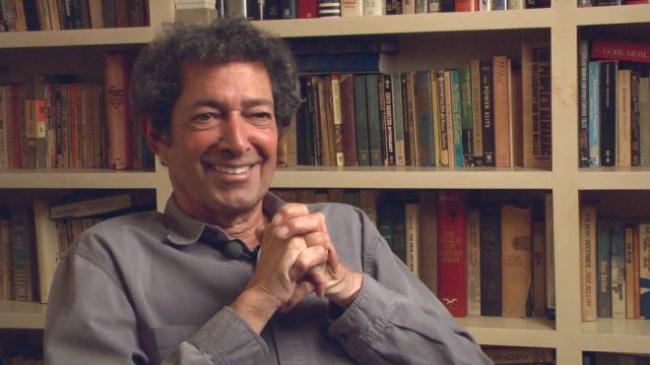
On August 20, 1945, after seven years of silence, a correspondence resumed between two friends—Peretz Markish and Joseph Opatoshu. In 1922, Markish had befriended Opatoshu, a Polish-born, now American Yiddish writer, when the latter visited Warsaw. It was the start of a strong friendship that weathered extreme geographical as well as significant ideological distances, even (or especially) after Markish’s Soviet repatriation. Markish’s 1945 letter to Opatoshu opens up a window into Soviet Yiddish reconceptualizations of Jewishness in the wake of the Holocaust.
A Different Justice
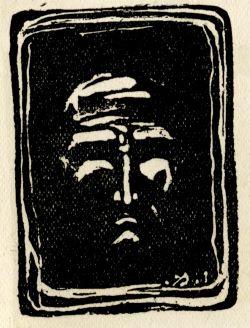
Already acclaimed as one of Yiddish literature’s most important modernist authors, Dovid Bergelson spent much of the 1920s in Berlin before eventually settling in the Soviet Union and becoming one of that country’s most prominent Yiddish intellectuals. In his 1929 novel Strict Justice (Mides-hadin), Bergelson broke new ground, unflinchingly confronting the death of the shtetl and the birth of a “new, harsher world” created by the Russian Revolution of 1917.
Read an excerpt from Strict Justice, translated by Harriet Murav and Sasha Senderovich
Still Recited
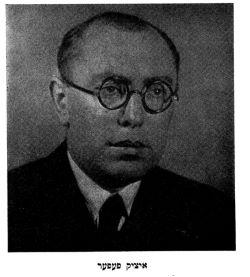
Despite their deaths, the Yiddish writers who died in Stalin’s purges were not forgotten, nor were their works. In this undated recording from Montreal’s Jewish Public Library, you can listen to the recitation of poetry by one of those writers, Itzik Feffer.
Not for Kids Only
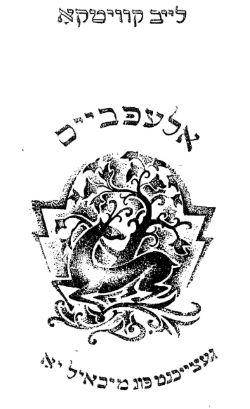
Although today he is less remembered than some of his peers, in his time Leyb Kvitko was particularly beloved as a writer for children. You can view many of his works in our Steven Spielberg Digital Yiddish Library, including this illustrated alphabet book, written using Soviet Yiddish orthography.
